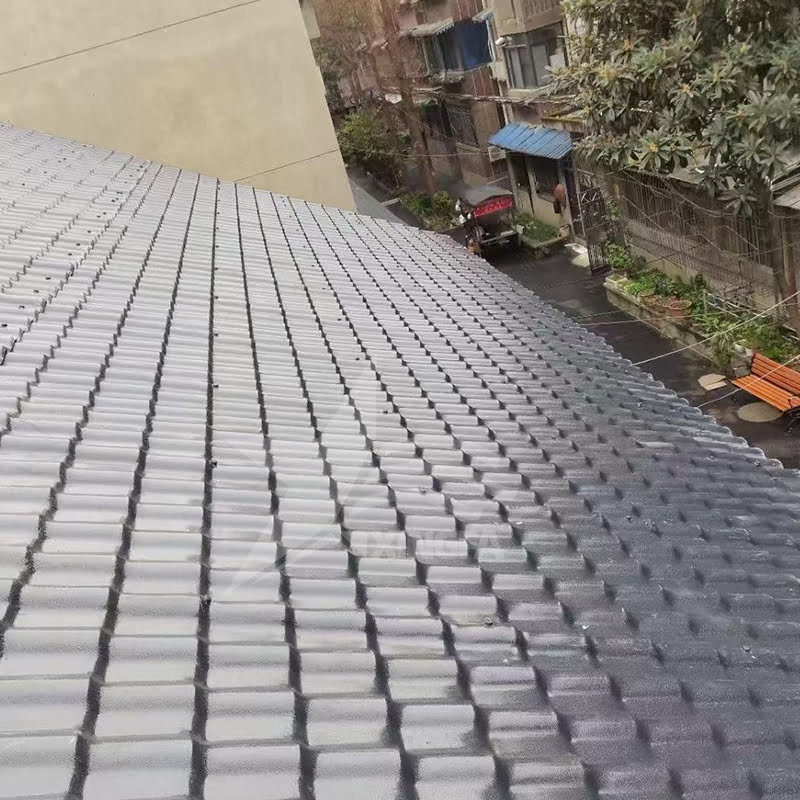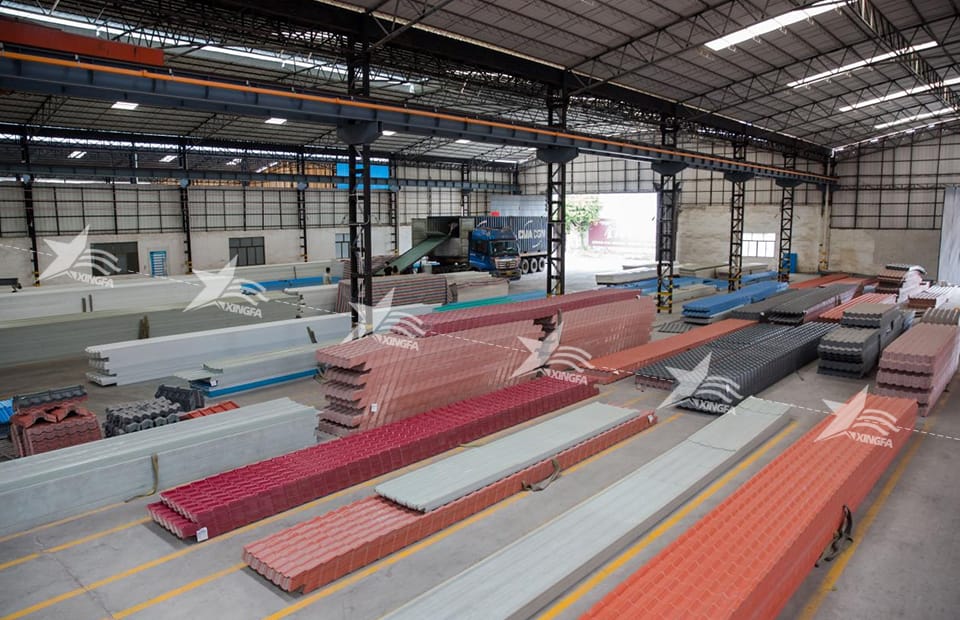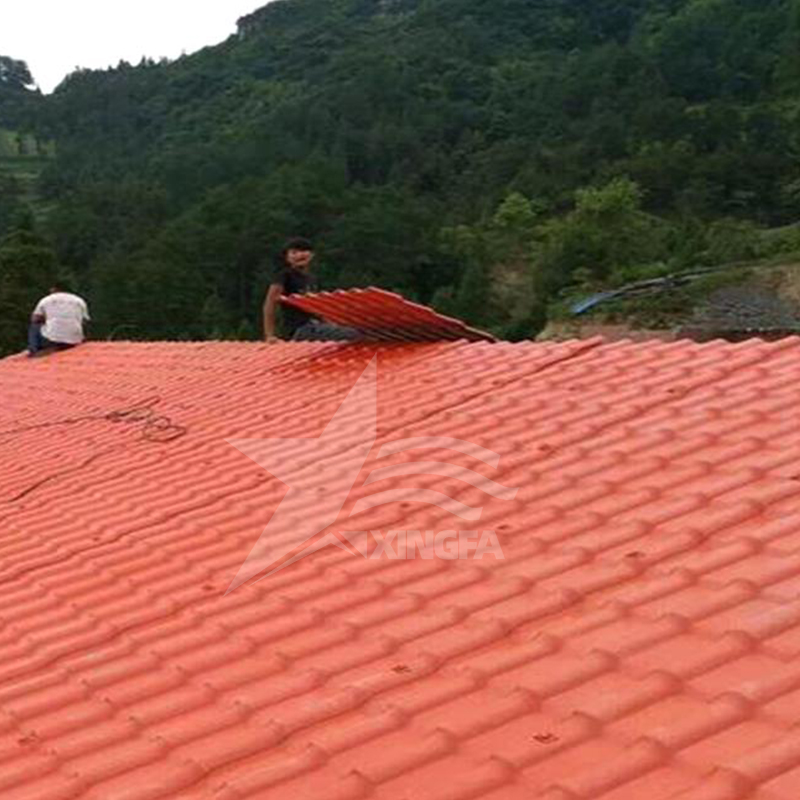In recent years, with the rapid development of rural areas, more and more farmers are choosing to use new types of roofing materials in their self-built houses. When selecting suitable roofing tiles, both glazed tiles and synthetic resin tiles have attracted attention. So, for new rural house construction, which is more suitable to use, glazed tiles or synthetic resin tiles?

Glazed tiles, as a traditional tile type, have a long history and are rich in cultural significance. They are made from high-quality mineral raw materials, processed through screening, crushing, high-pressure molding, and high-temperature firing. In terms of appearance, glazed tiles symbolize grandeur and are often used in temples or affluent households. In modern rural house construction, using glazed tiles can enhance the aesthetic appeal of the house, giving a sense of elegance. However, glazed tiles also have some noticeable drawbacks. Firstly, due to the problem of glaze cracking, glazed tiles contract in cold weather and expand in hot weather, leading to surface cracks. Once cracks appear, repairing them becomes a challenge because glazed tiles are laid in a jointed manner, and a cracked tile can affect the entire roof. Additionally, traditional glazed tiles are heavy, adding to the load-bearing pressure on the roof beams and are not suitable for long-distance transportation. In icy regions during winter, glazed tiles have a smooth surface and are prone to falling off, posing safety hazards. Furthermore, due to the characteristics of glazed tiles, they are not effective in eliminating a large amount of moisture generated inside the house, which could pose certain risks to the roof and occupants.

Compared to glazed tiles, synthetic resin tiles are becoming increasingly popular in new rural house construction. Synthetic resin tiles are typically made from ASA (super high weather-resistant engineering resin) material. They have many advantages such as long-lasting color, lightweight, high toughness, thermal insulation, corrosion resistance, and high weather resistance. They are suitable for various permanent building roof decorations, such as “flat to slope” projects. The color of synthetic resin tiles can remain bright for a long time without fading, enhancing the aesthetic appeal of the house. Additionally, due to their lightweight nature, installing synthetic resin tiles does not impose a heavy load on the house structure, reducing construction costs and risks. Moreover, synthetic resin tiles have good weather resistance and resistance to thermal expansion and contraction, adapting to various climate conditions and are less prone to cracking. They also effectively prevent water vapor penetration, improving the roof’s waterproofing performance and protecting the indoor environment.

Of course, when choosing suitable roofing tiles, other factors need to be considered. For example, selecting tiles that are resistant to cold or heat based on local climate conditions, and considering material costs based on budget. However, considering the above factors comprehensively, the advantages of synthetic resin tiles in new rural house construction are evident.










